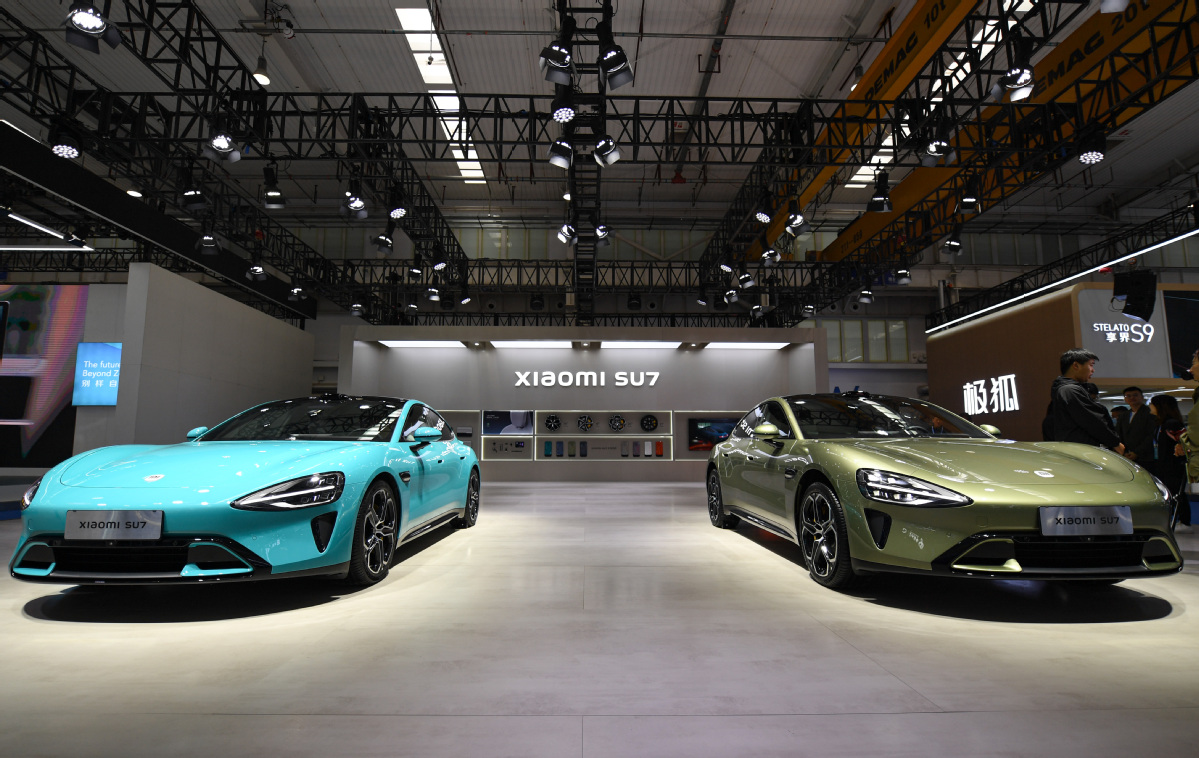Chinese firms deepen integration into intelligent connected vehicle industry chain

BEIJING - The SU7 series, Chinese tech firm Xiaomi's first self-developed new energy vehicle (NEV) model, has attracted considerable attention at the just concluded 2024 World Intelligent Connected Vehicles Conference (WICV) in Beijing, thanks to its sleek design and impressive capabilities in motors, batteries, intelligent driving and smart cockpits.
Xiaomi ventured into the NEV market in 2021, establishing a factory spanning over 700,000 square meters in Beijing's Economic-Technological Development Area, also known as Beijing E-Town -- a hub for innovation in China's autonomous driving industry. The market newcomer unveiled its SU7 model in late March.
"These models are produced at the Xiaomi auto factory, about 7 kilometers from the conference venue, where a new car rolls off the production line every 76 seconds," Ou Wantong, an auto retail consultant for Xiaomi, said at the event.
According to Zeng Qinghong, chairman of GAC Group, more than half of the top 100 chip design companies in China, and over 40 percent of the country's top 50 internet firms have entered the automotive industry.
In recent years, with the continuous innovation of technology and the strong support of policies, China has been accelerating the formation of an intelligent automobile industry chain.
From vehicle manufacturing, hardware and software support, to intelligent connectivity and charging services, upstream and downstream enterprises are working closely to develop and apply intelligent vehicle technology.
"China has achieved phased results in the fields of new energy, intelligent cockpit and intelligent driving, but in terms of the upstream of the industrial chain, especially chips with high performance, high process and high security, there is still a gap between us and the global advanced level," said Li Shufu, chairman of Geely Holding Group.
However, the good news is that many carmakers and tech firms in China are revving up the development and production of domestic chips.
Qiu Xiandong, chairman of FAW Group, revealed at the WICV that the company will focus on 460 key technologies in the future, especially developing an SoC chip with multi-domain integration. A total of 42 models of intelligent connected vehicles (ICVs) are expected to be launched by the company in the next five years.
Founded in 2022, tech company Huixi released its first high-performance intelligent driving chip, based on 7-nanometer automotive-grade process, during the event. It will provide strong computing support and solutions for promoting automatic driving and intelligent applications, and accelerate the large-scale application of intelligent driving technology.
SemiDrive, another leading tech firm focusing on automotive-grade chip products covering intelligent cockpits and smart vehicle control, has also become an eye-catcher at the event.
Its entire product series has achieved mass production of over six million units, and served more than 260 customers, covering over 90 percent of Chinese car manufacturers and several major international auto firms, according to Chen Shujie, vice-president of the company.
"The development of chips requires close collaboration between upstream and downstream enterprises, and it is believed that in the next 15 years, Chinese automotive chips will occupy an important position in the global market like today's power batteries," said Dong Yang, chairman of the China Automotive Chip Industry Innovation Strategic Alliance.
According to the Minister of Industry and Information Technology Jin Zhuanglong, a comprehensive industrial system for China's ICV sector has basically taken shape, covering products and technologies such as basic chips, sensors, computing platforms and chassis control.
The country's ICV sector currently boasts nearly 400 "little giant" firms, or novel elites of small and medium-sized enterprises that are engaged in manufacturing, specialize in niche markets and hold cutting-edge technologies, Jin noted.
"We must master the core competitiveness and build a stable, reliable and competitive industry chain system of ICVs, which is the basis for sustainable and high-quality development of the industry," Li Shufu of Geely said.

